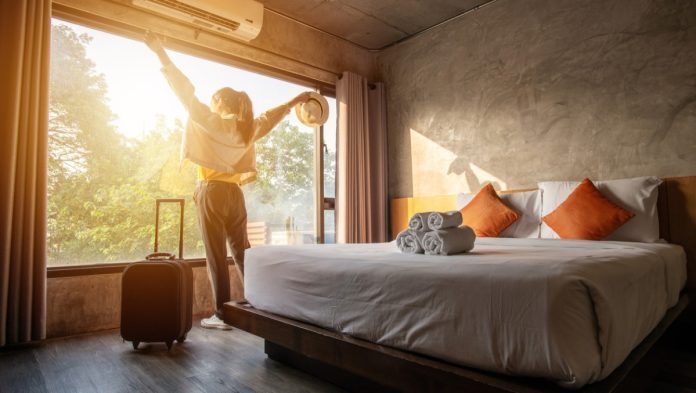Leading Thailand hospital group Bangkok Dusit Medical Services (BDMS), has plans to revive inbound medical tourism and seek new markets.
Bangkok Hospital Siriroj in Phuket, part of the BDMS group, has opened the ARTEMES Health and Beauty Destination, on the 4th floor of the hospital.
Bangkok Hospital Siriroj provides tertiary care services for people in Phuket, Phang-nga, Krabi and further afield in the Andaman region. Already a centre for medical tourism, the hospital has branched out into wellness tourism for both Thais and foreigners in the wake of Thailand reopening and Phuket Health Sandbox strategies.
The new centre includes specialists in cosmetic surgery, skincare, anti-ageing and dental treatment. The aim is to deliver one-stop health and beauty care and treatments, ranging from body contouring and cosmetic dentistry, through to preventive medicine up to hormonal and cellular levels for long-lasting youthfulness.
The ultimate goal is winning back international medical travellers. Phuket is being seen as key to driving Thailand as a leading medical tourism destination, as medical tourists are now more wary of big cities.
BDMS, Thailand’s largest hospital chain operator, is also planning to provide overseas patients with tele-medical services by 2023 as it moves to revive its medical tourism business.
It is developing a digital health ecosystem in which it can provide consultations, pharmaceutical services and health content, including health profiles, up-to-date health info, past check-up results and health-related products, all on a mobile.
BDMS runs 47 hospitals in Thailand and two in Cambodia, with a total of 8,763 beds. The company has no plans at the moment to physically venture into new markets. Instead, it will seek to expand its digital services overseas. But such expansion will require thorough research, as the services have to conform to the laws and regulations of the market BDMS would be entering. In certain cases, it will have to negotiate or ask for permission from foreign governments and relevant agencies.
Expanding digital services will help the hospital chain stabilise its revenue and profit, which has been adversely affected by the coronavirus pandemic due to lack of medical tourists.
According to BDMS, revenue from foreign patients, including expats, used to account for 30% of BDMS’s revenue. That shrank to 20% as the company can now only accommodate expatriates.
Tourism and medical tourism have opened, but both are slow.
BDMS claims it has a waiting list of people who plan to come to Thailand and get treatment. They mostly include returning customers from the Middle East, Cambodia, Laos, Myanmar, Vietnam, China and Bangladesh. The group is looking to neighbouring countries Myanmar and Cambodia, as promising sources of medical tourists in the future, as Thailand’s health care system is superior to those countries.
BDMS also wants more Chinese to visit its hospitals to receive high-level health care services such as cancer treatments, brain surgery and rehabilitation. In China, they currently see Thailand as a tourist destination more than a medical tourist destination.
The reopening will not immediately restore Thailand’s medical tourism business, as the patients’ home countries often have regulations that discourage them from leaving. BDMS does not expect recovery in 2022.
According Kasikorn Research, Thailand accepted 2.4 million medical tourism treatments in 2019. This is not the number of medical tourists as it counts separately each time a medical tourism is treated. The number of medical tourists, according to the Tourism Authority of Thailand, in 2019 was 632,000.






 ©2024 All rights reserved LaingBuisson
©2024 All rights reserved LaingBuisson 


